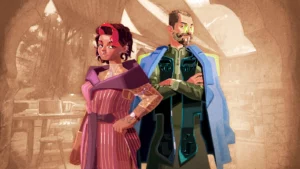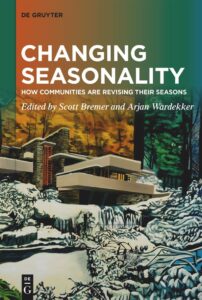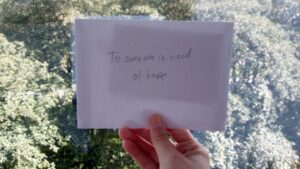Editorial Team

All Rise — an inappropriately joyous game about fighting for the planet
"We’re clashing Phoenix Wright, Disco Elysium and narrative deck building with the ecological crisis — to help fund real court cases."

Dark seasonality in videogames
"Dark seasonality in videogames" is a chapter in the larger book Changing Seasonality: How Communities are Revising their Seasons, which explores the role of calendars, seasons, and the cultural reaffirmations (or choice not to) thereof.

Ecogames: Playful Perspectives on the Climate Crisis
Ecogames: Playful Perspectives on the Climate Crisis brings together authors who explore the aspects of ecocritical engagement in and through games.

Climate Larps: Environmental Design in Nordic LARP
In an article published in the Journal of Analogue Game Studies Laura op de Beke discusses the role of LARP (Live Action Role Playing) games in understanding the climate crisis. Within the article she explores how the environment is considered and included within the Nordic LARP sphere.

Spationomy 2.0- An Application of Discursive Game Design
In a time where it is difficult to engage with the increasingly fraught world around us, games scholars are continuing to search for new ways to approach difficult topics. One such example, is the application of Discursive Game Design(DGD) as seen in the Carbon Pearl game produced in 2021.

Fostering an open mind and open attitude in higher education using games and art-based educational activities
With the use of art and media tools such as dialogical art, game play, and game development, this project aims to foster a space wherein it is possible to discuss complex topics, and for students with diverging opinions to be able to civilly discuss while learning from one another and developing a greater understanding of those whose opinions may differ from their own.

Spationomy 2.0
The Spationomy 2.0 project was started in October of 2019, and concluded with a final conference held in November of 2022. The project was funded by the Erasmus+ program of the European Union.

Ecomodding: Understanding and Communicating the Climate Crisis by Co-Creating Commercial Video Games
This article explores how the climate crisis and specifically the underlying “crisis of the imagination” (Bendor 2018, 132) exacerbate the entrenchment of environmental communication, and how modifying commercial video games (ecomodding) can facilitate the use of games as effective communication infrastructures to address this issue. Environmental communication challenges are well-studied, but remain difficult to tackle in practice.

Taking Playful Scholarship Seriously: Discursive Game Design as a Means of Tackling Intractable Controversies
The article at hand explores the concept of playful scholarship, focusing specifically on the use of playfulness in re-assessing the collaboration between academia and societal partners to tackle “intractable policy controversies” (Schön and Rein 1994, p. 23)—i.e., challenges in which opposing parties operate with conflicting frames (often without even noticing).

PhD Project: The Becoming-Playful of Warfare in the Netherlands
This PhD research project seeks to understand and explain this ongoing logistical process by mapping out the Dutch ‘military-academic-entertainment complex’ and the nature of its relationship to the ludification of warfare in the Netherlands.
